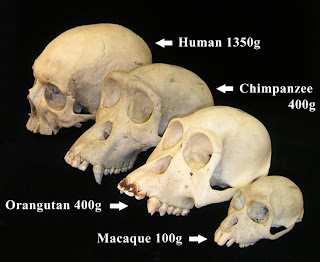 |
| Image by Christopher Walsh, via Wikimedia |
An anthropologists at UC Irvine has theorized that the human
tendency to have a high anticipation for good, satisfying events to take place is merely a result of left-over DNA from our ancestors.
Dr. Stemmer, professor of biological anthropology, claims that this characteristic is strongest in
children, that it fades as we mature and realize that life is ultimately
unfulfilling. He predicts that, over the course of the next few
hundred generations, this tendency will eventually disappear from the human
species.
Having unrealistic, lofty expectations for
the future can give less intelligence species the drive to push through difficult
situations in order to pursue satisfying relationships, says the report he's put together.
“There must have been some crossed wiring,” states Dr.
Stemmer. “At some point, the simple sexual drive must have become intermixed
with a hope for happiness and lifelong companionship. For a while, it must have given an edge, gave slightly more drive to the desire to seek a mate, and that odd-ball gene somehow ended up becoming commonplace. Now that humans,
as a species, are more intelligent and realize that such hope is really just nonsense, we can develop better motivations for reproduction.”
When asked what sort of motivations should be developed, Stemmer
seemed less sure of himself. “Humanity needs to exist. And now that there are
sperm banks, highly intelligent people who may never find anyone to spend their
life with—or, I mean, never find someone to reproduce with—can still pass on their
good genes to the next generation. They may die alone, but at least they can leave a bit of a legacy.”
Dr. Stemmer is planning on publishing a paper on the theory next year. The delay is due to the university asking him to first see a therapist and try out a subscription to Match.com.

No comments:
Post a Comment